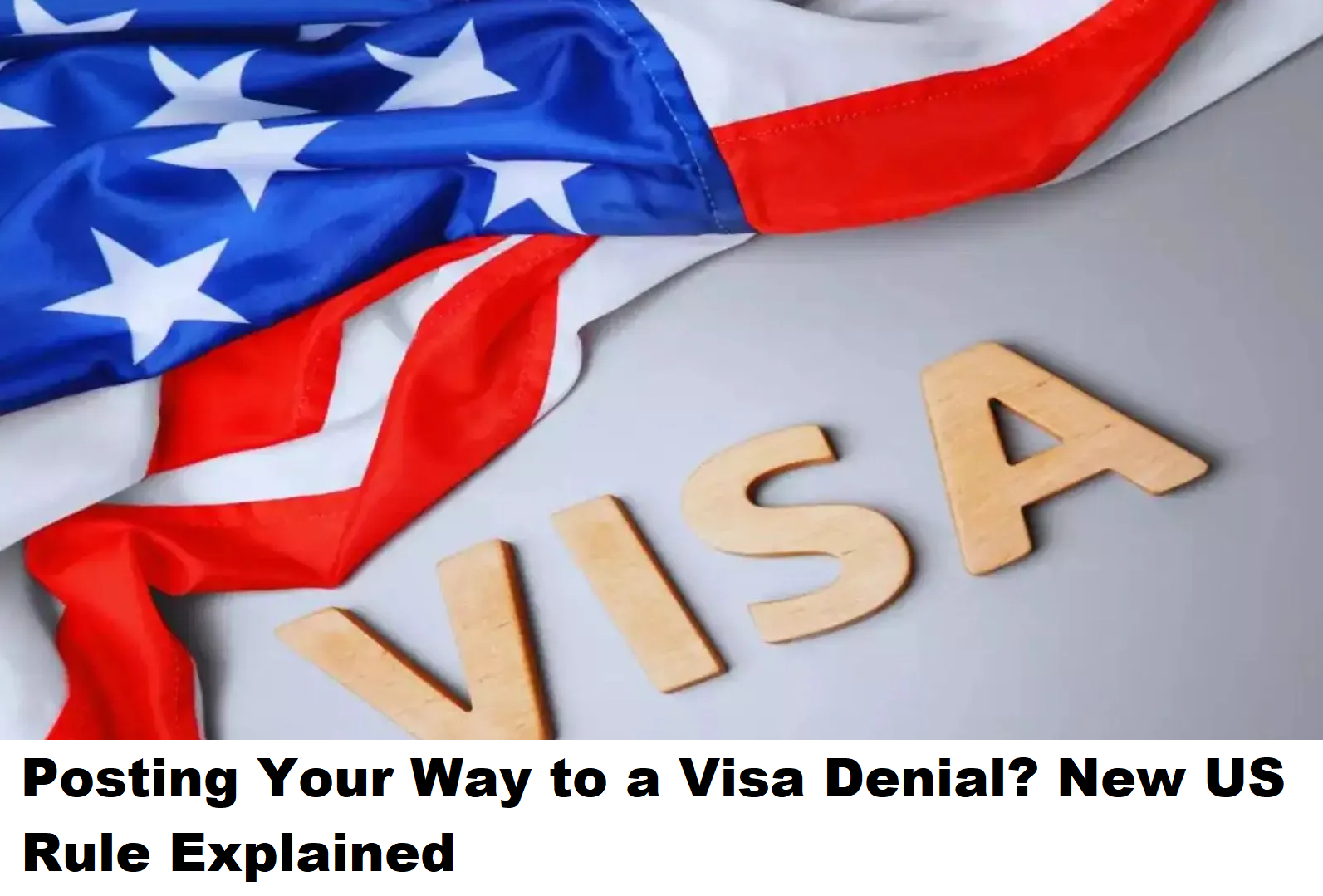In today’s hyper-connected world, what you post online isn’t just seen by your friends and followers — it could also be seen by immigration officials. If you’re planning to apply for a US visa, your digital footprint might be more important than you think.
Why Is the US Government Watching?
Since 2019, the US Department of State has implemented policies that require most visa applicants to disclose their social media handles from the past five years. This means your online activity can now be reviewed as part of your visa application process. The goal? To identify potential security threats and ensure applicants align with US immigration laws.

What Are They Looking For?
Here are some types of online behavior that could raise red flags:
• Inconsistencies in Personal Information
If your profiles show different birthdates, job histories, or names than what’s on your application, it could trigger suspicion.
• Violent or Extremist Content
Posts showing support for violence, extremism, or terrorist ideologies can result in immediate denial.
• Illegal Activity or Substance Use
Images or messages promoting illegal behavior, even if they were made as jokes, can be harmful.
• Fake Profiles or Multiple Aliases
Using multiple accounts or aliases can look deceptive and prompt deeper scrutiny.
• Anti-Government or Inflammatory Remarks
Critical comments about US policies or other nations may be interpreted as a security concern.
Real-Life Impact
There have already been documented cases of students, professionals, and tourists being denied entry or having their visas revoked because of something they posted or were tagged in online. Even liking or sharing controversial posts can be problematic.
How to Stay Safe
Before applying for a US visa, consider doing a digital hygiene check:
1. Audit Your Accounts
Review your Facebook, Instagram, Twitter (X), TikTok, LinkedIn, and any other public platforms.
2. Clean Up Sensitive Content
Remove or archive posts that could be misinterpreted — especially those involving alcohol, politics, or violence.
3. Update Information
Ensure consistency between your social media profiles and your visa application.
4. Set Privacy Settings
Make your personal content visible to only close friends. But remember — nothing is ever truly private online.
5. Be Honest and Transparent
Never try to hide or fake information. If asked, disclose your real accounts. Providing false data can lead to automatic rejection.
Final Thoughts
The inclusion of social media in visa screening marks a significant shift in how the U.S. evaluates foreign nationals. Applicants must now exercise greater caution, as posts, comments, and online affiliations are subject to review. Even permanent residents may face consequences if their digital activity reflects content deemed controversial, politically charged, or inconsistent with U.S. policies.
This development reflects a broader trend toward stricter immigration oversight, originally heightened under previous administrations and still in effect today. As the U.S. continues to strengthen its border and security protocols, international students, professionals, and travelers must remain aware of how their online presence could impact their immigration outcomes.



